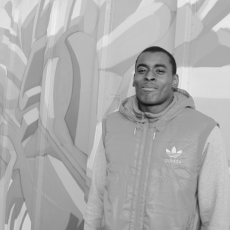Fear and mistrust: young people and the police
Young people, particularly from larger cities and deprived areas, have a troubled relationship with the police that has been well- and often mis- documented, the 2011 riots being the perfect example. It is convenient to sweep the complex tensions between social control, protection and power under the carpet when blame needs to be laid, but when you ask them, young people can articulate with amazing discernment how these situations fester and eventually combust. And it is in our collective interest to listen.
The youth engagement work we have undertaken as part of this project has led us to speak with children and young people aged 9-22 years about their experiences and perceptions of stop and search; the policing practice that results in disproportionate amounts of them, especially from BME backgrounds, being confronted and challenged as they go about their daily lives; at least 25% of all stop and searches are conducted on under 17s. Their stories highlight not only the problems that young people face in these interactions but also how this sets in motion a broader chain of social problems through fear, social exclusion and violence that wider society is ultimately forced to deal with.
There are of course recurring themes of frustration and a total breakdown of trust, yet you seldom hear of anger towards the power itself but the way in which it is applied by officers. When young people ask for explanations but do not get them, are fed lies and misinterpretations of the law, are harassed by the same officer day in day out and any efforts to exercise their rights are read as cockiness, it is no wonder they wind up feeling like the powerless victims of unstoppable bullies.
The United Nations Convention on the Rights of the Child recognises the vulnerability of young people in the criminal justice system and requires that “all decisions taken within the context of the administration of juvenile justice, the best interests of the child should be a primary consideration.” In this context, it is alarming that there are no safeguards in place to protect children in these situations, which is in stark contrast to rigorous guidelines for handling children once in custody. When we asked a group of under 12s what they would do if stopped and searched, some replied that they would call Childline or report it to their school’s Sexual Assault Team. This clearly exposes the terror and threat with which they can view an encounter with the police and its potential to severely impact upon a child’s wellbeing. With 126,349 10-17 year olds being stopped and searched in London in 2012 alone, plus an additional child under 10 years per week, policing guidelines must urgently incorporate these concerns.
What is more, those who are particularly vulnerable and disadvantaged in education and employment are further embarrassed, degraded and oppressed by stop and search; data for England and Wales shows us that black people are six times more likely to be stopped and searched than white people, and Asians are twice as likely. Having grown up in environments where they would never let anyone disrespect them, they are subject to public humiliation at the hands of the police, all in front of their peers and communities.
The wide-ranging harm done to young people, coupled with a lack of protection, leaves them wide open to physical, mental and emotional damage from an early age. Tighter legislation, meaningful dialogue with impacted communities and a fundamental change in police culture is needed if we ever want to address the underlying factors that lead to resistance, rebellion and, if left to fester, rioting.
by Natasha Dhumma
A version of this article was originally published in Minority Rights Now



